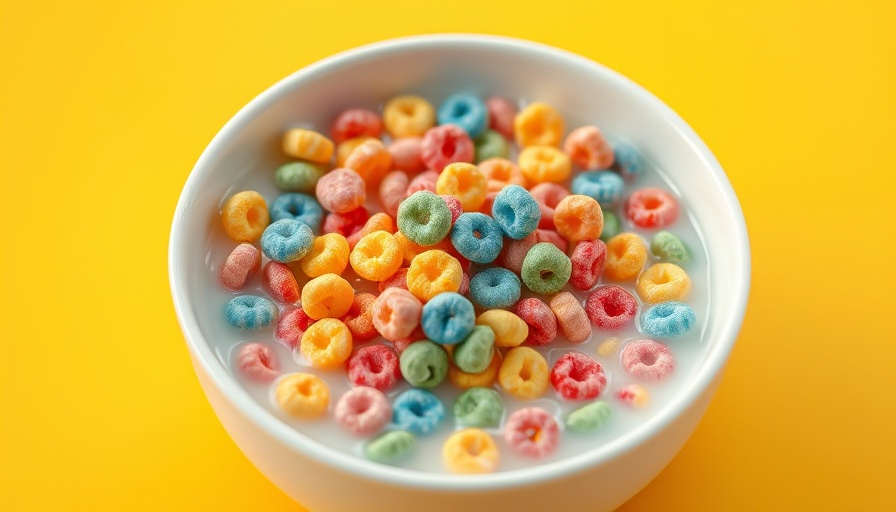
Understanding Ultra-Processed Foods: A Growing Concern for Health
In recent years, the debate around ultra-processed foods has gained considerable traction, especially with movements advocating for healthier dietary choices like Robert F. Kennedy Jr.'s 'Make America Healthy Again' initiative. The campaign aims to reduce consumption of these heavily processed items, which have been linked to serious health risks, including cancer and dementia.
According to experts such as Giulia Menichetti, PhD, and Scott Keatley, RD, it is essential to understand what qualifies as ultra-processed food before radically changing your diet. The NOVA classification system, used by nutritionists worldwide, categorizes food based on the level of processing it undergoes.
Decoding the NOVA Classification System
The NOVA scale classifies foods into four categories:
Unprocessed and Minimally Processed Foods: These are in their natural state or barely altered, such as carrots and apples.
Processed Culinary Ingredients: Foods like olive oil and flour, which undergo minimal processing, fall here.
Processed Foods: These involve alterations to the food's original state, such as canned tuna or certain cheeses.
Ultra-Processed Foods: High in artificial additives like colors, flavors, and preservatives, this category includes many packaged foods.
Understanding these classifications helps consumers make informed decisions about what they eat and the potential health impacts of their dietary choices.
The Health Impact of Ultra-Processed Foods
Most dietitians agree that limiting ultra-processed foods is wise. Research indicates a strong correlation between high consumption of these items and various serious health conditions, including type 2 diabetes, cardiovascular diseases, and some mental health issues.
Scott Keatley points out that many products in this category are loaded with added sugars and unhealthy fats while being low in beneficial nutrients. Although it might not be realistic to completely avoid these foods due to their prevalence, increasing awareness and moderation is the first step toward better health.
What Exactly is Considered Ultra-Processed?
Ultra-processed foods dominate about 70% of America’s food supply, making them hard to avoid entirely. Notable examples include:
Frozen Foods
Sodas
Hot Dogs
Deli Meats
Fast Food
Packaged Cookies
Cakes
Salty Snacks
Plant-Based Milks
Jarred Sauces
Strategies for a Healthier Diet
While it may be impractical to strictly eliminate ultra-processed foods, adopting a more conscious approach to eating can yield positive outcomes. Here are some strategies:
Focus on Whole Foods: Increasing your intake of unprocessed and minimally processed foods can greatly enhance your nutrient levels.
Moderation is Key: If indulging in ultra-processed foods occasionally, try to balance them with healthier options throughout the day.
Read Labels: Being aware of harmful additives and sugar levels can guide your choices in grocery stores.
The Future of Nutrition
The growing body of evidence surrounding the health risks of ultra-processed foods is leading to a change in public health messaging. An increasing number of nutrition professionals advocate for transparency in food labeling so consumers can minimize unhealthy choices.
Moreover, initiatives led by public health sectors seek to educate the public on the importance of dietary choices for long-term health. As the connection between nutrition and wellness continues to be explored, the hope is that people will embrace diets that include fewer processed items, ultimately leading to healthier communities.
Take Action for Your Health
Ultimately, the journey towards better health starts with small, informed choices. By prioritizing whole foods, staying educated on dietary impacts, and engaging in community discussions about nutrition, you can take significant steps towards improving not just your own health but also that of those around you.
Explore your local farmers' markets or join community-supported agriculture (CSA) programs to embrace a more wholesome and personal relationship with the food you consume. Taking action today can lead to a healthier tomorrow.
 Add Row
Add Row  Add Element
Add Element 



 Add Row
Add Row  Add
Add 


Write A Comment